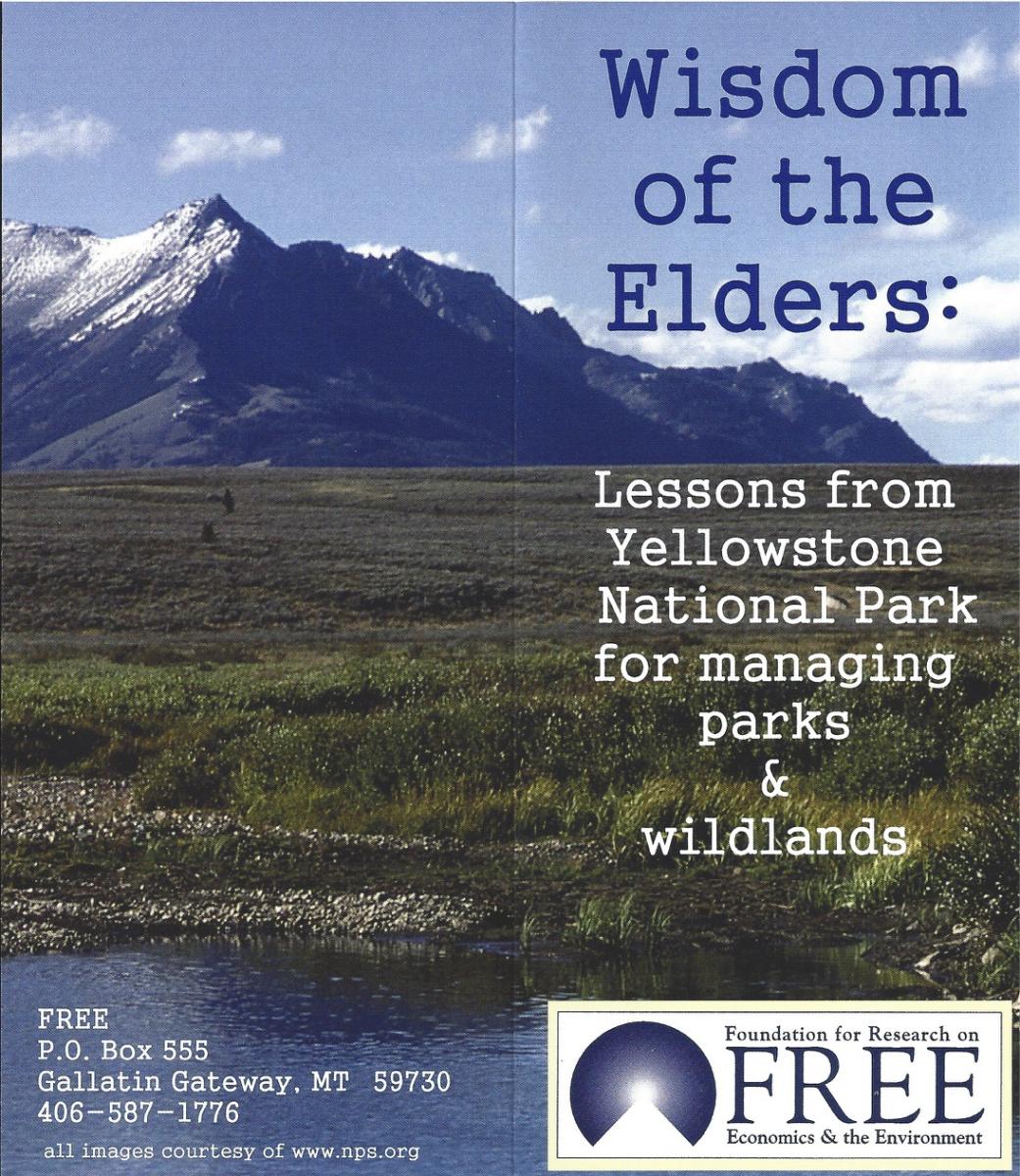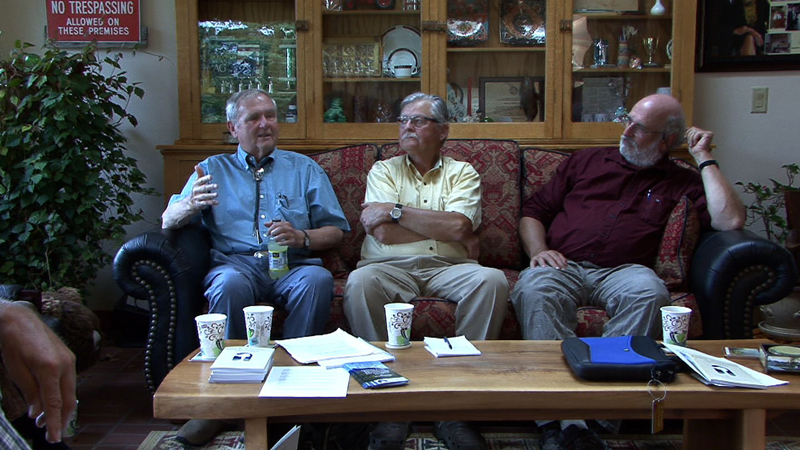Capturing the "Wisdom of the Elders"
By: John A. Baden, Ph.D.Posted on June 18, 2015 FREE Insights
I am pleased to share FREE's latest project involving liberty, ecology, and prosperity. Yesterday, June 17, we initiated a new delivery medium, video production with Bozeman's Oolite Media. This was the first in our “Wisdom of the Elders” video series. Here is the cover of the flyer introducing the project.

FREE focuses on the romance side of environmental policy; parks, wildlands, wilderness, wildlife, range, farmland, and water. We surely don't deny the importance of the sludge side, but we minimize dealing with it. That's one reason we live on a working ranch in the Greater Yellowstone ecosystem. This is where we filmed some of the wise elders who led innovative policy corrections in Yellowstone Park.
The policy adjustments involved fire policy, grizzly bear population recovery, and reintroduction of wolves. Professor Jerry Johnson of Montana State University conducted interviews with the former Yellowstone Park Superintendent Bob Barbee, the former Chief Park Scientist John Varley, and Doug Smith the leader of Yellowstone's wolf program. Jerry concluded with observations from Scott McMillion, publisher of Montana Quarterly. Scott, a participant in several FREE seminars, has covered each of these issues for decades.
We filmed the interviews in our home's sunroom, across the drive from FREE's office near Gallatin Gateway.

Our ranch activities complement FREE's mission, of fostering the conjunction of liberty, ecology, and prosperity. Conserving and improving wildlife habitat are central to ranch operations. I can’t imagine a better place to locate FREE’s office.
FREE's new “Wisdom of the Elders” project began with conservations about correcting errors of “scientific management”. Most dramatic and controversial was the reintroduction of wolves to Yellowstone after the Department of Interior’s Biological Survey had exterminated them in the 1920s. Elders from the Park Service also discussed cultural, political, and economic complications of fire policy and grizzly population recovery.
FREE's work on environmental and natural resource issues illustrate how entrepreneurship, private property rights, and the market process can complement governmental agencies. Understanding and implementing this logic is an evolutionary process. And we are making progress.
Ideas considered radical three decades ago are widely accepted, especially among people concerned with wildlife and lands. People at yesterday's filming generally agreed the independent sector is increasingly important to successful management of parks and wildlands. Institutions and specific organizations evolve in response to changing knowledge, constraints, and opportunities. Over the past several decades the individuals we interviewed led several of these fundamental management policy changes.
Yellowstone Park is a treasure on multiple dimensions. This includes education about natural resource policy. It was created in 1872 as the world's first national park. The U.S. Army managed Yellowstone until 1918. Since then the National Park Service, a creation of the Progressive Era, ran it by “scientific management”. However, entitlements and demographic changes increasingly stress that model. In the political process, I expect welfare and transfer payments, including Medicare and Medicaid, to trump wildlife and trees. How might we counter these forces?
What arrangements will insulate our parks, wildlands, and waters from political mischief and mismanagement? Which will protect them from private sector exploitation? Which ones will foster and accept scientific understanding? These are some of the questions FREE is addressing.
Could we next bring the wisdom of America's founders, and more recent thinkers such as Hayek and Public Choice economists, to the challenge of harmonizing liberty, ecology, and prosperity?
Many young people who are increasingly disenchanted with government are also increasingly concerned with ecology. All of them know of Yellowstone Park. Even if they have not yet visited it, they know it’s worth saving.
Capturing wisdom of the elders can be a major contribution. Our video series will help them understand why we should pay attention to them.

